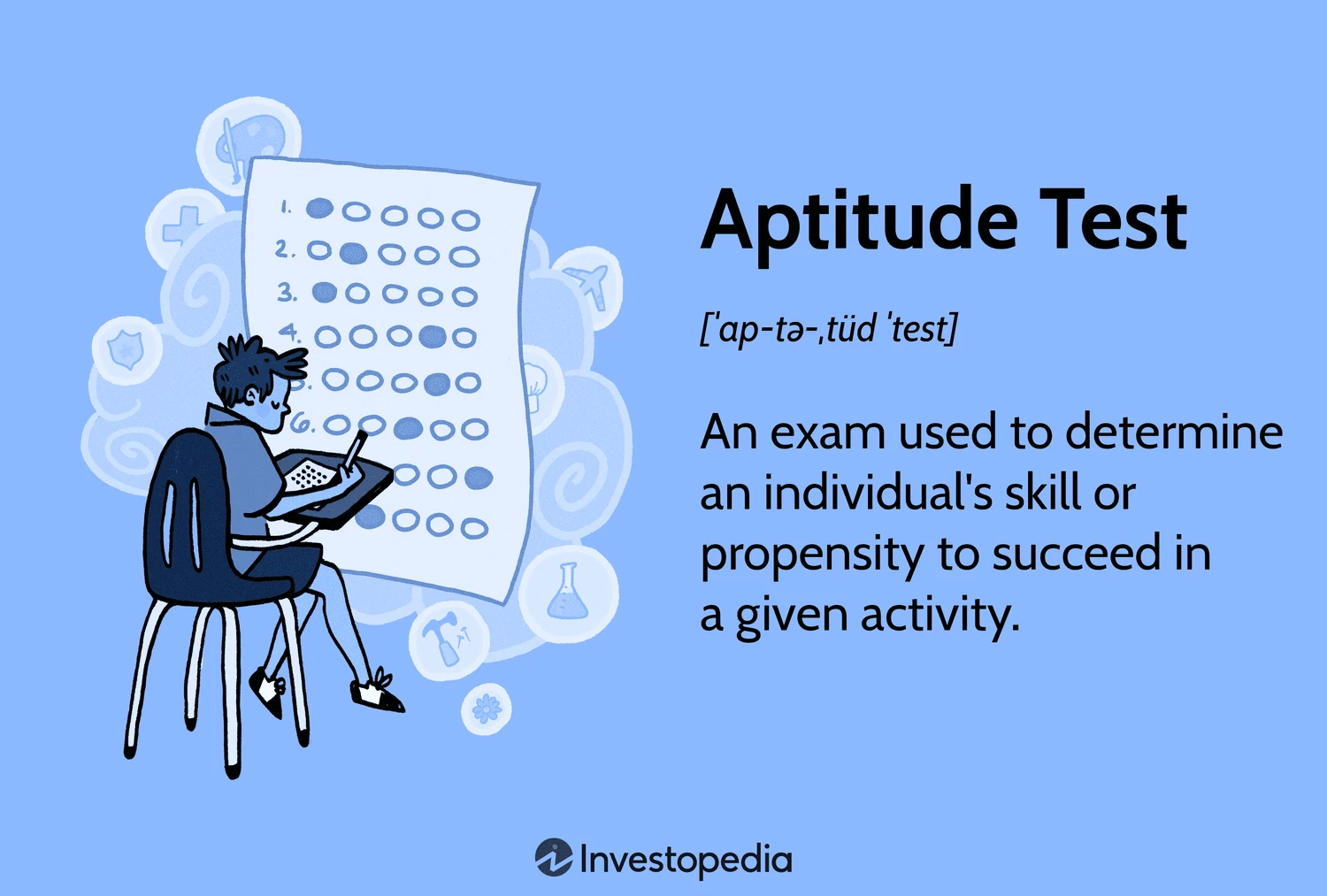Understanding Aptitude Assessments
An aptitude test is a valuable tool used to evaluate an individual’s inherent abilities and potential for success in a specific field or activity. These assessments are designed to uncover an individual’s natural strengths and weaknesses, providing insight into their predisposition for success based on their unique characteristics.
Primarily employed for job placement, college admissions, and career guidance, aptitude tests offer individuals a glimpse into potential career paths aligned with their interests and talents.
Key Insights
- An aptitude test evaluates an individual’s abilities, predicting their performance in areas where they lack prior experience or training.
- Schools utilize these tests to identify students suitable for advanced classes or specific disciplines such as engineering or languages.
- Companies integrate aptitude tests in recruitment processes to assess candidates’ strengths and weaknesses for job roles.
- Unlike knowledge or intelligence tests, aptitude assessments focus on specific skills or propensities and cannot be studied for.
Exploring Aptitude Assessments
Aptitude assessments offer insights into an individual’s competencies across various subjects. They help individuals identify suitable career paths based on their skills and interests, guiding decisions on college majors and career choices.
These evaluations measure logical reasoning, numerical proficiency, and verbal abilities through problem-solving tasks, assessing critical thinking skills in diverse scenarios.
Instances Where Aptitude Assessments Are Applied
Elementary schools often administer aptitude tests, combining them with intelligence and achievement evaluations to determine student placements in specialized programs or educational tracks.
Language Aptitudes
For instance, the Modern Language Aptitude Test (MLAT) gauges a student’s potential for mastering foreign languages successfully, aiding in identifying the need for special education services.
Aptitude Testing for Older Students
Differential Aptitude Tests (DATs) assess a spectrum of aptitudes from spatial relations to language usage, assisting administrators in making curricular recommendations.
Furthermore, aptitude and personality assessments play a crucial role in highlighting key skills on resumes and cover letters for job applications.
Curriculum Alignment
Mechanical reasoning scores can guide students towards engineering-focused coursework, while proficiency in speed and accuracy assessments may lead to computer science or finance studies.
Recruitment Considerations
Aptitude tests aid companies in recruitment decisions, informing HR professionals about candidates’ strengths and weaknesses, potentially influencing promotion choices within organizations.
Situational judgment tests predict employees’ responses to workplace scenarios, evaluating communication styles and teamwork abilities.
Some specialized situational judgment tests focus on customer service roles, analyzing traits like empathy and diplomacy for assessing success in sales-related careers.
Exploring Aptitude Test Varieties
Aptitude tests serve diverse educational and career-purpose assessments. Common categories include:
- Mechanical reasoning
- Situational judgment
- Diagrammatic/spatial reasoning
- Abstract reasoning
- Numerical reasoning
- Verbal reasoning
- Inductive reasoning
- Logical reasoning
- Clerical aptitude
Mastering Aptitude Test Success
Contrary to belief, adequate preparation plays a crucial role in excelling on aptitude tests. Access to practice materials and study guides, both online and offline, equips individuals for test success.
If uncertain about career choices, aptitude and assessment tests available online can streamline decision-making processes by filtering relevant options.
To optimize test performance, daily practice, understanding test formats, meticulous instructions review, and effective time management are essential.
Aptitude Test Overview with an Example
One widely recognized aptitude test, the Armed Forces Vocational Aptitude Battery (ASVAB), evaluates various skills including science, math, and mechanical comprehension to aid in job placement decisions.
Is an IQ Test Considered an Aptitude Test?
An IQ test focuses on intelligence measurement, while aptitude assessments concentrate on practical application skills.
Is There an Online Option for Aptitude Tests?
While traditional and online aptitude test formats exist, many assessments are now commonly administered online, available in both complimentary and paid versions.
Conclusion
Aptitude tests serve as indicators of an individual’s capability to excel in educational and professional environments, providing valuable insights into strengths and weaknesses.
While these assessments offer predictive value, they do not guarantee absolute accuracy, as success is also influenced by dedication and effort. Preparation enhances test performance, enabling individuals to showcase their abilities effectively.
By approaching aptitude tests as opportunities for learning and growth, individuals can surpass expectations and discover hidden talents.
